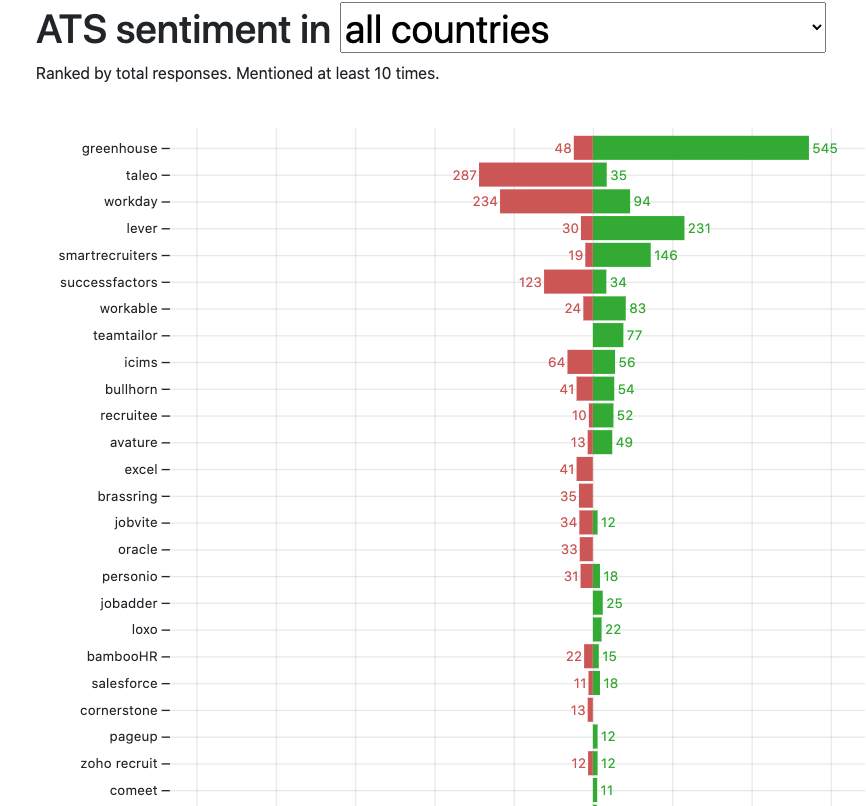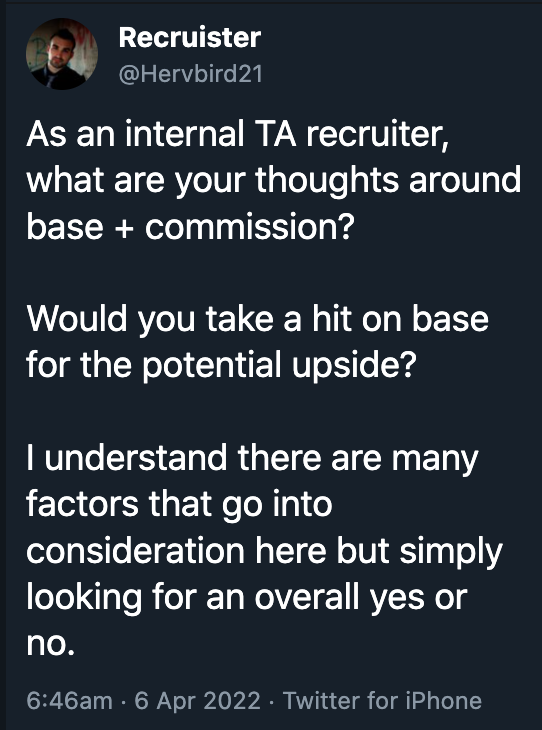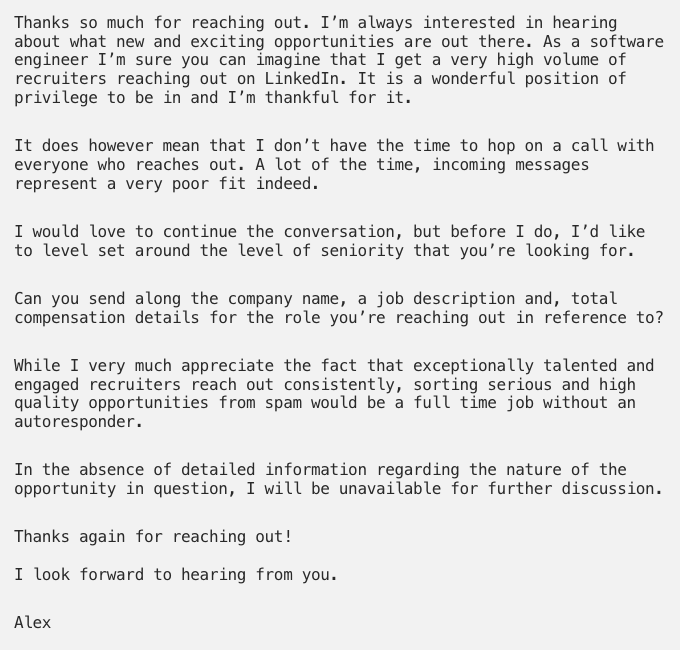I have this tendency to get up on a soapbox and tell HR and TA leaders that measuring “Days to Fill” (Time to Fill, Time to Hire, Applicant to Hire, etc.) is a complete waste of time! I do this knowing that this is primarily the main recruiting metric used by the vast majority of organizations. So, I’m kind of calling them dumb, and I don’t like that, because that’s not what I believe!
I find the majority of HR & TA leaders to be hardworking, caring folks who want to do the right thing, but no one is showing them the “right” thing. I mean, I did in my book, but no one wants to read a full book!
Why is speed overrated in recruiting?
First, there is absolutely no correlation between how fast you got someone hired to how good of an employee they will be. Zero! Nil! Naught! None! So, you are measuring something, and telling people is massively important, but it has zero correlation to whether or not you hired someone that will be good for your company.
Awesome! Wow! Let’s hire faster! The faster we can get these walking zombies in here the faster we can fail! Yay! Fail faster! #WinkyFace
Second, I’ll give you that some sort of speed of recruiting metric as correlated to your industry benchmarks might be a good indicator to let you know how well your function is running or not running. Meaning, if your average days to fill is 40 and the industry benchmark is 30, you probably have some work to do. But, if you are at 29 and the benchmark is at 30, it doesn’t necessarily mean you are better at recruiting, just a bit faster.
Third, you can hire too fast. We tend to never think about all the false-positive hiring we do by moving too quickly. If we are rushing our process, we open the door to letting bad hires into the organization. We also open the door to filling roles before we can truly see what’s available in the market. Oh, Timmy is interested, let’s hire him quickly! And then the day after, Mary, applies and she’s much better, but you already hired Timmy.
Fourth, a large portion of the time in a day’s-to-fill metric isn’t even owned and controlled by recruiting. Hiring managers and the candidates themselves, control upwards of 50% of a time metric in any recruiting process.
Why do we focus so much on speed in recruiting?
Because “speed” is something c-suite executives get all excited about. If we are doing it faster, we must be doing it better. Plus, most c-suites think it takes too long to hire, so slower recruiting validates their belief that recruiting is broken. But, 99.99% of c-suites never recruited, so they are stupid. I mean, they are stupid about recruiting!
Because this is the metric we’ve always used to measure recruiting success in our organizations. Throughout the history of recruiting this is the metric that was measured, so this is the one we use. Kind of like how sports used metrics like points per game, and then advanced analytics came out, like plus/minus and now we look at older metrics as rudimentary in describing the performance of athletes.
Because we don’t know a better way to measure how or if we are successful in recruiting in our organizations. This is a tough one because we don’t know what we don’t know. I wish our ATS and recruiting technology vendors would do a better job of measuring and teaching advanced metrics to TA leaders. (Shoutout to vendors like SmartRecruiters, Greenhouse, Gem, and Predictive Hire – they all have some good stuff if you choose to use it.) The reality is, you would make your technology stickier if you did this.
What should recruiting focus on, rather than speed?
You know what’s coming. The funnel dummy!
We have certain actions that lead directly to recruiting success in our organizations if we analyze our recruiting funnels. The recruiting funnel will show you directly individual and team performance. But, let’s set that aside for a second. The funnel will ultimately give your organization the first truth about recruiting it’s ever had, the actual capacity it can rely on in recruiting. Your c-suite is dying to know this, and all you can tell them is, “we’ll work faster and longer and harder”.
Knowing your actual recruiting capacity will set you free and make you look like a genius as compared to every other TA leader that has become before you in your organization.
Cost of hire by source. Source effectiveness. Quality of applicant by Source (No, not the quality of hire, that’s not a TA metric), candidate experience metrics, recruiter experience metrics, etc.
Most shops run a classic 6-3-1 funnel. Meaning, it takes six screened candidates passed onto a hiring manager, who will then choose three of those candidates to interview, and then make an offer to one. If you take the billions of hires done at all organizations each year, it will almost always, on average, fall into a 6-3-1 model. Top of funnel, I.E., how many applicants to find six screened candidates, is a different story. That is dependent on a number of variables.
So, should you stop focusing on speed?
Yes. And, No.
Yes, you should stop focusing on speed if you are in a cycle where this year’s recruiting speed goal was to reduce your days to fill from 37.1 days to 36.8 days. At that point, your speed goal is worthless. You are only incrementally getting faster and you’ll see no real positive outcome from such a small time savings, even at enterprise and a million hires. Yes, I know the math says different at scale, but you are also forgetting the most important part. THERE. IS. NO. CORRELATION. BETWEEN. SPEED. AND. QUALITY. IN. RECRUITING!
No, you should not stop if you know your recruiting is flat-out broken and you are not even in the ballpark from a speed perspective. If it’s taking you 50 days to fill a position that your competition is doing in 25 days, you’re broken, and while speed isn’t the cure to your ills, you’ve got to catch up on the process side of things.
Okay TA Peeps! Tell me I’m wrong in the comments!



